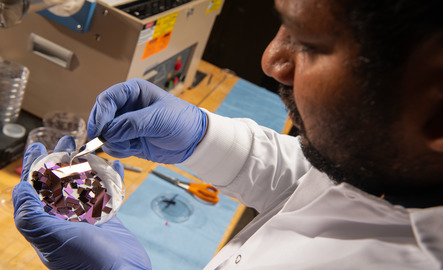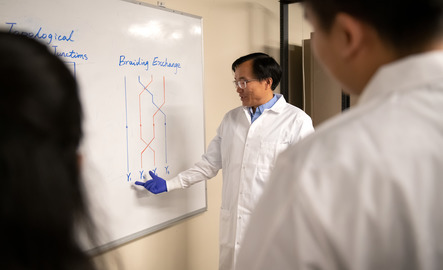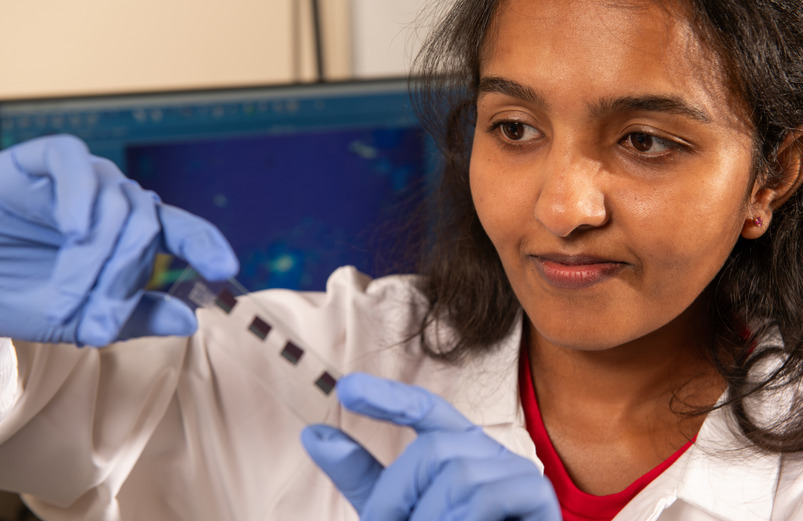About the Quantum Information Science & Engineering Minor
The quantum information science and engineering (QISE) minor offers students an interdisciplinary
education in one of the most rapidly advancing areas of technology. The curriculum
blends engineering, physics, quantum mechanics and quantum computing so that you’re
well-equipped to understand the complex quantum technology landscape.
In addition to coursework, you’ll conduct research projects that bolster your understanding
of the field and your resume. Students also complete prestigious internships and get
involved in student-led organizations on campus.
Join an academic community built on support and curiosity as you take the next step
toward your future!

The minor in quantum information science and engineering is an excellent addition to a wide variety of engineering and science-related majors. However, this program is limited to those pursuing an undergraduate degree at the University of Wyoming.

What can you do with a quantum information science minor?
A minor in quantum engineering and information science prepares you for fast-paced careers in technology. You may choose to apply your knowledge in tech consulting, policy, software engineering, research or quantum computing roles.
Enhancing your degree with a minor in quantum information science is a great way to prepare for advanced technological roles. Here are some of the jobs you may consider upon graduation:
- Quantum software or hardware engineer
- Research scientist
- Algorithm developer
- Applications developer
- Physicist
- Systems engineer
There is a rapidly growing need for those with expertise in the quantum field. Here are some of the places that typically hire graduates with quantum engineering experience:
- Technology companies
- Research groups
- Government agencies
- Defense contractors
- National labs
- Universities and research institutions
- Cybersecurity firms
Quantum information science uses the principles of quantum mechanics to develop advanced technologies for computing, communication and sensing. It powers quantum computers that can solve complex problems faster than traditional systems, enables ultra-secure communication through quantum encryption and improves precision in fields like navigation and medical imaging. These innovations have the potential to transform industries such as cybersecurity, healthcare, finance and artificial intelligence.
One way to become a quantum research scientist is by earning a bachelor's degree in physics, mathematics, engineering or computer science. Then pursue a master’s or Ph.D. in a specialized field like quantum physics, quantum information science or quantum engineering. During your graduate studies, focus on research, gain lab experience and work with faculty on quantum-related projects. After graduation, you can work in academic research, government labs or tech companies developing quantum technologies. Internships, research assistantships and staying current with the field will also help you break into this competitive and rapidly growing area.
Join UW’s Quantum Research Community
The University of Wyoming’s Center for Quantum Information Science and Engineering (C‑QISE) is a leading hub for interdisciplinary research in quantum technology. Faculty and students work together on projects involving quantum materials, hardware, algorithms and sensing—advancing real-world solutions in areas like energy and cybersecurity. Since launching in 2023, the center has secured millions in research funding and offers undergraduate students unique opportunities to get involved in hands-on, cutting-edge quantum research alongside experts in physics, engineering, chemistry and computer science.



